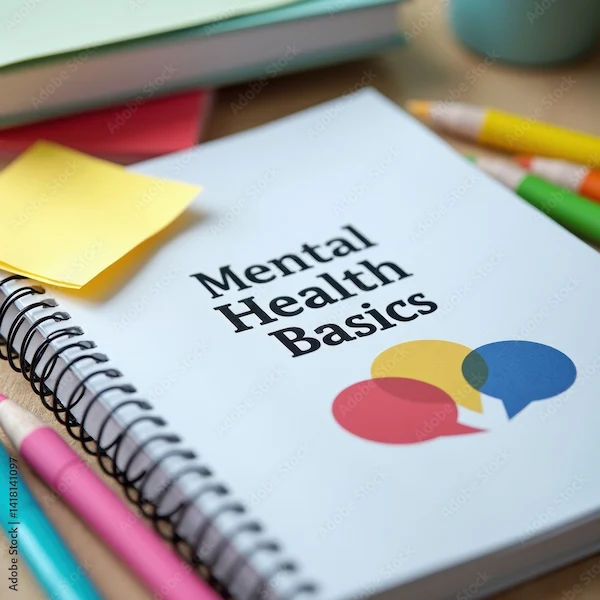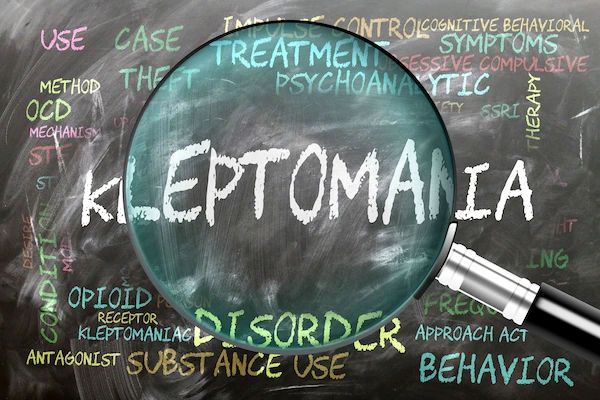Guide to Mental Health Crisis: Signs, Support, and Solutions
Learn how to recognise, respond to, and recover from a mental health crisis. This comprehensive guide covers warning signs, emergency steps, de-escalation techniques, and long-term support resources.


Introduction
A mental health crisis can feel overwhelming, isolating, and terrifying, whether you're experiencing it yourself or watching a loved one struggle. It's a period of intense psychological distress where an individual's usual coping mechanisms fail, and their thoughts, feelings, and behaviours become unmanageable. Understanding what a crisis looks like and knowing how to respond can be the difference between despair and recovery. This guide is designed to demystify the experience of a mental health emergency. We will walk you through how to recognise the critical warning signs, provide immediate, step-by-step actions to take, and outline the path toward sustainable healing and support. You are not alone, and help is always available.
What is a Mental Health Crisis?
A mental health crisis is any situation in which a person's thoughts, emotions, and behaviours put them at risk of harming themselves or others or severely impair their ability to function in daily life. It's not simply a bad day or feeling stressed; it's a state of acute disruption that requires immediate attention.
Crisis vs. Everyday Stress: Knowing the Difference
While everyday stress is a normal part of life, a crisis is characterised by its intensity and duration. Stress might make you feel anxious before a work presentation, but a crisis might make it impossible for you to leave your bed or stop crying for days. The key differentiators are the loss of functioning (e.g., unable to work, attend school, or care for oneself) and the presence of specific risk factors like suicidal ideation or self-harm.
Common Types of Mental Health Crises
Crises can manifest in various ways, often depending on underlying conditions:
- Suicidal Crisis: Active thoughts, plans, or attempts to end one's life.
- Self-Harm Crisis: Engaging in or having a strong urge to engage in self-injurious behaviours (e.g., cutting, burning).
- Panic Attack: A sudden, intense episode of fear with physical symptoms like a racing heart, shortness of breath, and dizziness, often feeling like a heart attack.
- Psychotic Episode: A break from reality, which may include hallucinations (seeing or hearing things that aren't there) or delusions (fixed false beliefs).
- Traumatic Reaction: An intense emotional and physical response to a recent traumatic event, such as an accident or assault.
Consult a Psychiatrist for the best advice
Recognising the Red Flags: Signs of a Crisis
Early recognition can lead to faster intervention. The signs can be verbal, emotional, or behavioural.
Emotional and Verbal Warning Signs
- Expressing hopelessness, being a burden, or having no reason to live.
- Talking explicitly about death, dying, or suicide.
- Showing overwhelming anxiety, panic, or uncontrollable anger.
- Verbalising feelings of being trapped or in unbearable pain.
Behavioural Warning Signs
- Social Withdrawal: Isolating from friends, family, and social activities.
- Drastic Mood Swings: Severe shifts in emotion, from deep depression to sudden calm (which can sometimes indicate a decision has been made to attempt suicide).
- Reckless Behaviour: Engaging in risky activities without regard for consequences (e.g., reckless driving, substance abuse).
- Giving Away Possessions: Making arrangements or giving away prized belongings.
- Neglecting Personal Hygiene: A noticeable decline in self-care.
What to Do In a Mental Health Emergency: A Step-by-Step Guide
If You Are in Crisis Yourself
- Reach Out Immediately: You do not have to face this alone. Contact a crisis line (988 Suicide & Crisis Lifeline), text HOME to 741741 (Crisis Text Line), or call a trusted friend or family member.
- Go to a Safe Space: Remove yourself from any immediate dangers, such as sharp objects or medications, if you are having thoughts of self-harm.
- Seek Professional Help: If you can, go to the nearest emergency room or walk-in psychiatric clinic. Your safety is the top priority.
- Contact a Professional: If your thoughts are overwhelming but you are not in immediate danger, consult a doctor online with Apollo24|7 for further evaluation and to discuss a path forward.
If You Are Supporting Someone in Crisis
- Assess for Immediate Danger: Gently ask direct questions like, "Are you thinking about killing yourself?" This does not put the idea in their head; it shows you are open to talking about it.
- Listen Without Judgment: Let them express their feelings. Avoid dismissing their pain or offering simplistic solutions. Your presence is powerful.
- Do Not Leave Them Alone: If there is an immediate risk of harm, stay with them or ensure someone else can.
- Encourage Professional Help: Guide them toward calling a hotline or going to the ER. You can offer to call or go with them.
- Follow Up: Check in on them after the acute crisis has passed. Ongoing support is crucial for recovery.
De-escalation Techniques: How to Calm a Crisis Situation
Effective Communication Strategies
- Stay Calm: Your calm demeanor can be grounding for the person in crisis.
- Use Active Listening: Nod, make eye contact, and paraphrase what they say to show you understand (e.g., "It sounds like you're feeling completely overwhelmed right now.").
- Validate Their Feelings: Acknowledge that their pain is real. Use phrases like, "I believe you," and "That sounds incredibly difficult."
- Ask Open-Ended Questions: "What can I do to help right now?" or "Tell me more about what you're feeling."
What to Avoid Saying or Doing
- Don't Minimise: Avoid saying, "Just cheer up," "It's not that bad," or "You have so much to live for."
- Don't Argue: Challenging delusions or intense emotions can escalate the situation.
- Avoid Making Promises You Can't Keep: Do not promise secrecy if they disclose plans to harm themselves or others.
- Don't Use Force: Unless it is an absolute last resort to prevent imminent harm, physical restraint can cause further trauma.
Specific Crisis Scenarios and How to Handle Them
Suicide and Self-Harm Crisis
This is a life-threatening emergency. Do not leave the person alone. Call 988 or take them to the nearest emergency room immediately. Remove access to any potential means of self-harm.
Severe Panic or Anxiety Attack
Help the person focus on their breathing. Guide them to take slow, deep breaths. Move to a quiet, calm environment. Use grounding techniques: ask them to name five things they can see, four they can touch, three they can hear, two they can smell, and one they can taste.
Psychotic Episode or Break from Reality
Stay calm and speak in a clear, slow, and reassuring voice. Do not confirm or deny their hallucinations/delusions. Instead, focus on the emotions they are experiencing ("I can see that this is very frightening for you"). Gently encourage them to get professional help and ensure they are in a safe environment.
After the Crisis: Recovery and Next Steps
The end of the immediate crisis is the beginning of the healing journey.
Creating a Safety Plan
A safety plan is a personalised, written list of coping strategies and sources of support. It typically includes:
- Recognising personal warning signs.
- Internal coping strategies (e.g., meditation, exercise).
- People and social settings that provide distraction.
- People to contact for help (friends, family).
- Professionals to contact (therapists, crisis lines).
- How to make the environment safe.
Seeking Professional Long-Term Support
A crisis often indicates the need for ongoing care. This can include:
- Therapy: Cognitive behavioural therapy (CBT), dialectical behaviour therapy (DBT), and other modalities can provide tools for managing emotions.
- Psychiatry: A psychiatrist can evaluate if medication is needed to manage symptoms of depression, anxiety, or other conditions.
- Support Groups: Connecting with others who have shared experiences can reduce feelings of isolation. If your condition does not improve after trying these methods, book a physical visit to a doctor with Apollo24|7 to create a comprehensive and personalised long-term treatment plan.
Resources and Getting Help
National and Local Crisis Hotlines
- 988 Suicide & Crisis Lifeline: Call or text 988 (24/7, free, confidential).
- Crisis Text Line: Text HOME to 741741.
- The Trevor Project (LGBTQ+): 1-866-488-7386 or text START to 678-678.
Finding a Therapist or Counselor
Use online directories like Psychology Today, GoodTherapy, or your insurance provider's portal to find licensed mental health professionals in your area. Many platforms, including Apollo24|7, also offer online therapy options for convenient access.
Conclusion
Navigating a mental health crisis is undoubtedly one of life's most challenging experiences, but it is crucial to remember that crises are temporary and treatable. By recognising the signs, knowing how to respond with compassion and urgency, and understanding the resources available, we can all become a vital part of the support network that saves lives. The journey to recovery is not always linear, but it is possible with the right tools and professional guidance. Your mental health is just as important as your physical health, and seeking help is a sign of profound strength. If you or someone you know is struggling, take that first step today—make the call, send the text, or reach out to a professional. Healing begins with a single action.
Consult a Psychiatrist for the best advice
Consult a Psychiatrist for the best advice

Dr Rohit Ranjan
Psychiatrist
10 Years • MBBS, MD (Psychiatry)
Bengaluru
Apollo Medical Center, Marathahalli, Bengaluru
(25+ Patients)

Dr. Kommoju Venkata Eswar
Psychiatrist
10 Years • MBBS, MD(Psychiatry)
Kolkata
VDC Clinic, Kolkata
Dr. Krishanu Chakrabraty
Psychiatrist
9 Years • MBBS, DNB(Psychiatry)
South Dumdum
Dr. Krishanu Chakrabarty Clinic, South Dumdum

Dr. Pratik Kumar
Psychiatrist
10 Years • MBBS,DNB-PSYCHIATRY
North West Delhi
DELHI GLOBAL MIND CLINIC, North West Delhi
(75+ Patients)

Dr. Ankit Halder
Psychiatrist
7 Years • MBBS, MD (Psychiatry)
Kolkata
MCR SUPER SPECIALITY POLY CLINIC & PATHOLOGY, Kolkata
Consult a Psychiatrist for the best advice

Dr Rohit Ranjan
Psychiatrist
10 Years • MBBS, MD (Psychiatry)
Bengaluru
Apollo Medical Center, Marathahalli, Bengaluru
(25+ Patients)

Dr. Kommoju Venkata Eswar
Psychiatrist
10 Years • MBBS, MD(Psychiatry)
Kolkata
VDC Clinic, Kolkata
Dr. Krishanu Chakrabraty
Psychiatrist
9 Years • MBBS, DNB(Psychiatry)
South Dumdum
Dr. Krishanu Chakrabarty Clinic, South Dumdum

Dr. Pratik Kumar
Psychiatrist
10 Years • MBBS,DNB-PSYCHIATRY
North West Delhi
DELHI GLOBAL MIND CLINIC, North West Delhi
(75+ Patients)

Dr. Ankit Halder
Psychiatrist
7 Years • MBBS, MD (Psychiatry)
Kolkata
MCR SUPER SPECIALITY POLY CLINIC & PATHOLOGY, Kolkata
More articles from Mental Health
Frequently Asked Questions
What's the difference between the 988 Lifeline and just going to the ER?
The 988 Lifeline is a fantastic first point of contact for immediate, confidential support from trained crisis counselors. They can help de-escalate the situation and discuss options. The Emergency Room is necessary for immediate, life-threatening situations where there's a clear and present danger of harm, and where medical stabilisation might be needed.
I'm worried about a friend, but I promised not to tell anyone. What should I do?
Your friend's safety outweighs a promise of secrecy. If they are in immediate danger, you must break that promise to get them help. Explain to them that you care too much about them to keep something this serious a secret. A true friend will prioritise their life over a promise.
How long does a mental health crisis typically last?
The acute, most intense phase can last anywhere from a few hours to a few days. However, the underlying issues that led to the crisis require longer-term management. The goal of intervention is to shorten the acute phase and prevent future crises through ongoing care.
Can a mental health crisis cause physical symptoms?
Absolutely. Intense anxiety can cause chest pain, palpitations, and shortness of breath. Depression can lead to extreme fatigue, changes in appetite, and widespread body aches. The mind and body are deeply connected.
What should I do if I call a crisis line?
A trained, empathetic counselor will answer. They will listen to you, ask questions to understand your situation, and work with you to help calm your overwhelming thoughts and feelings. Everything you say is confidential. They are there to support you, not judge you.




